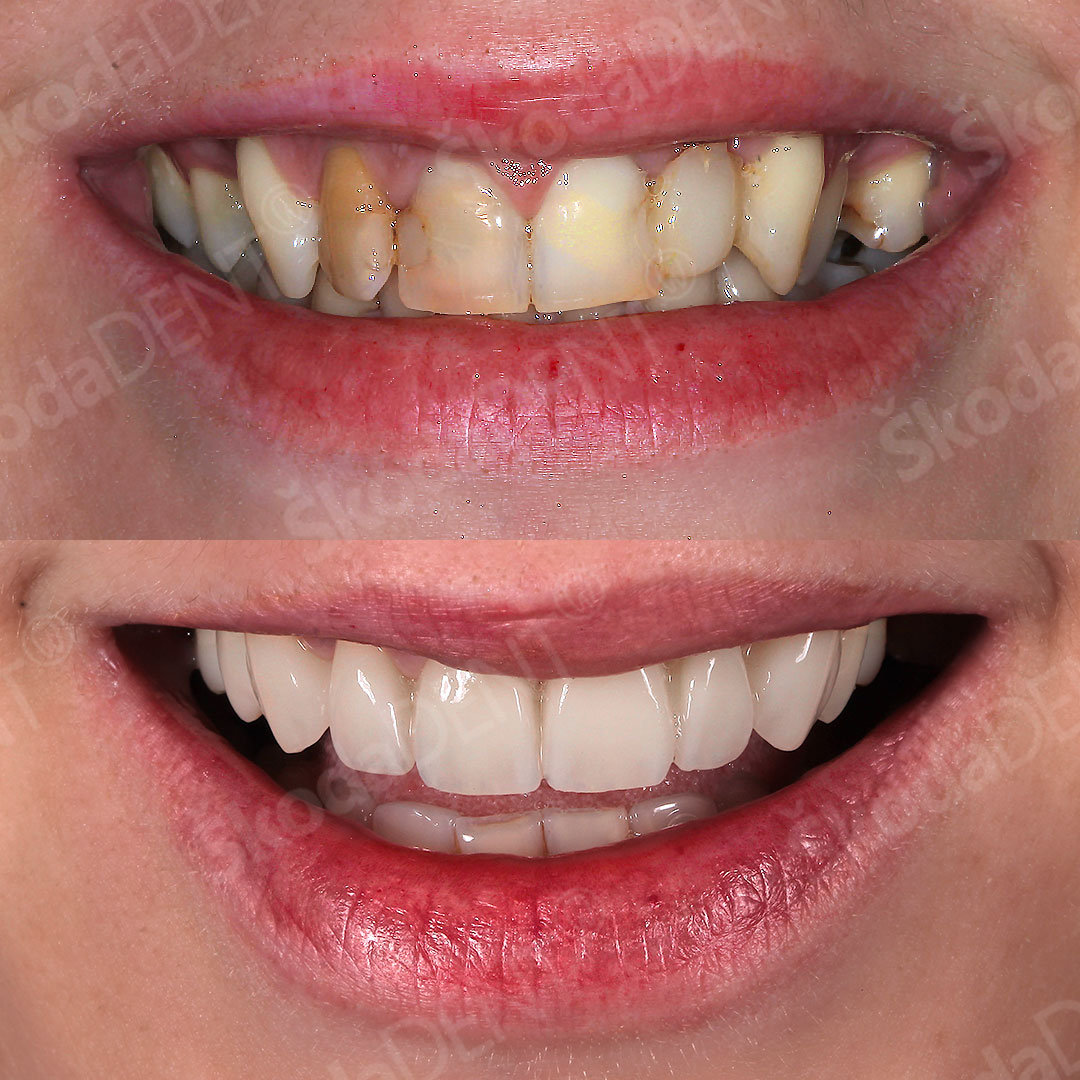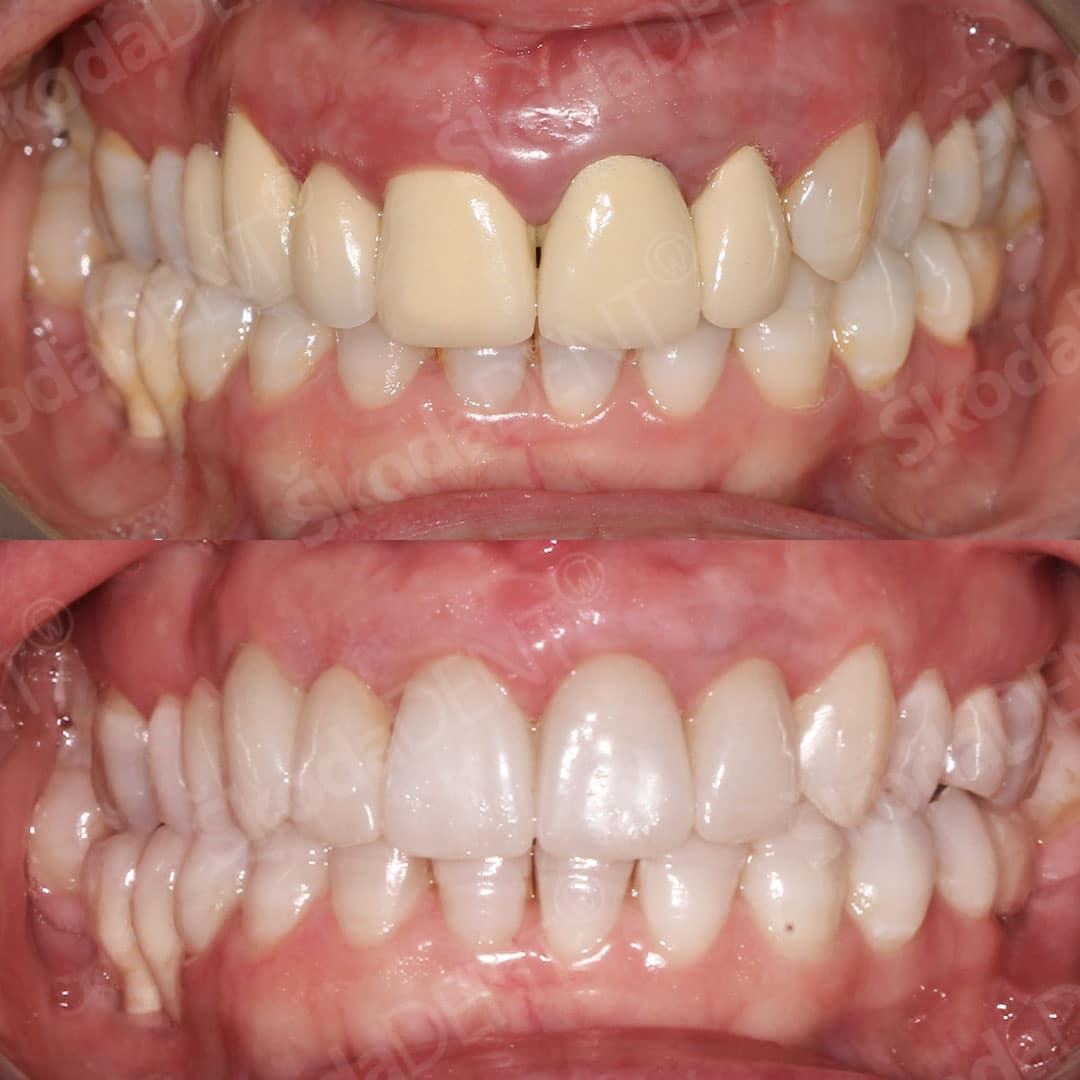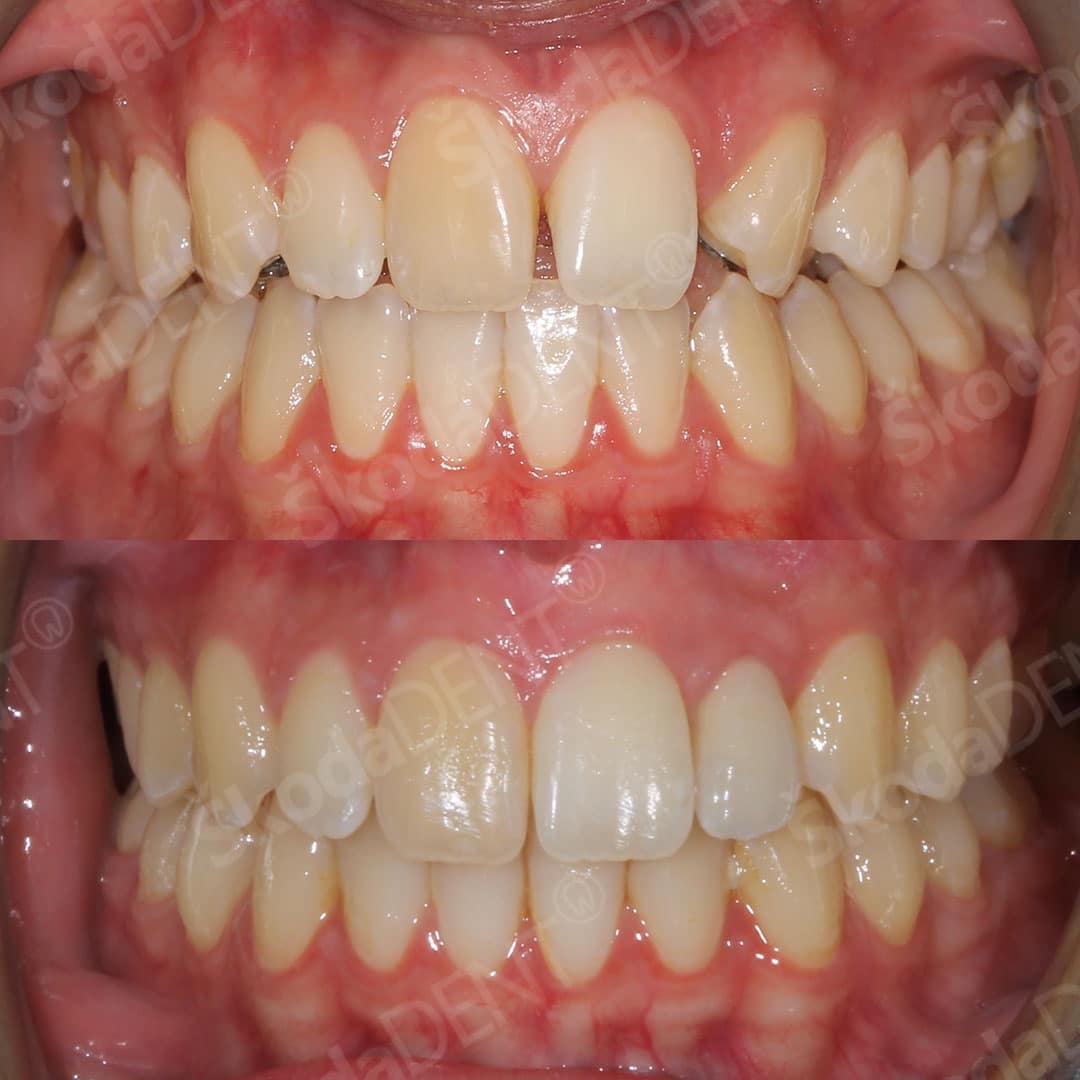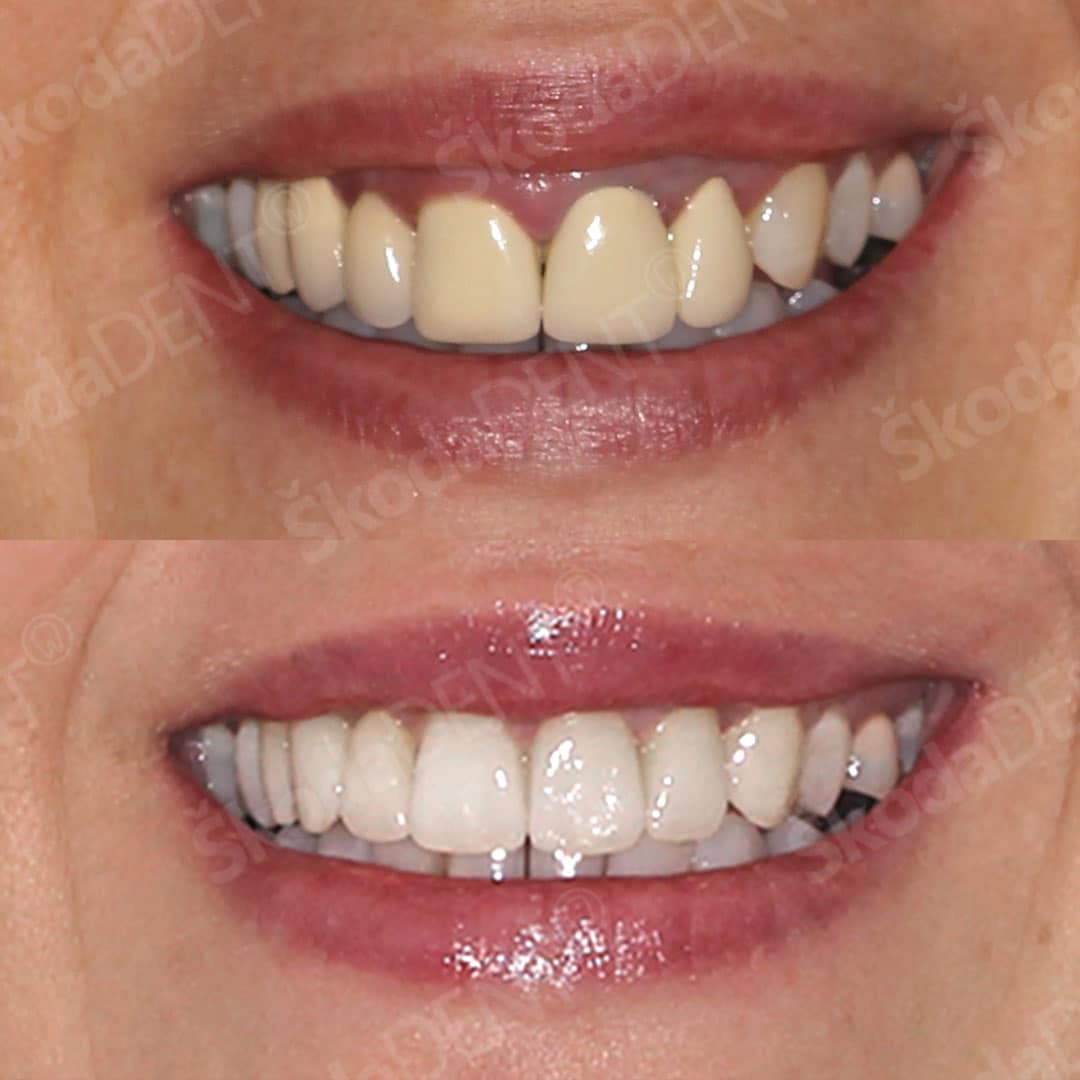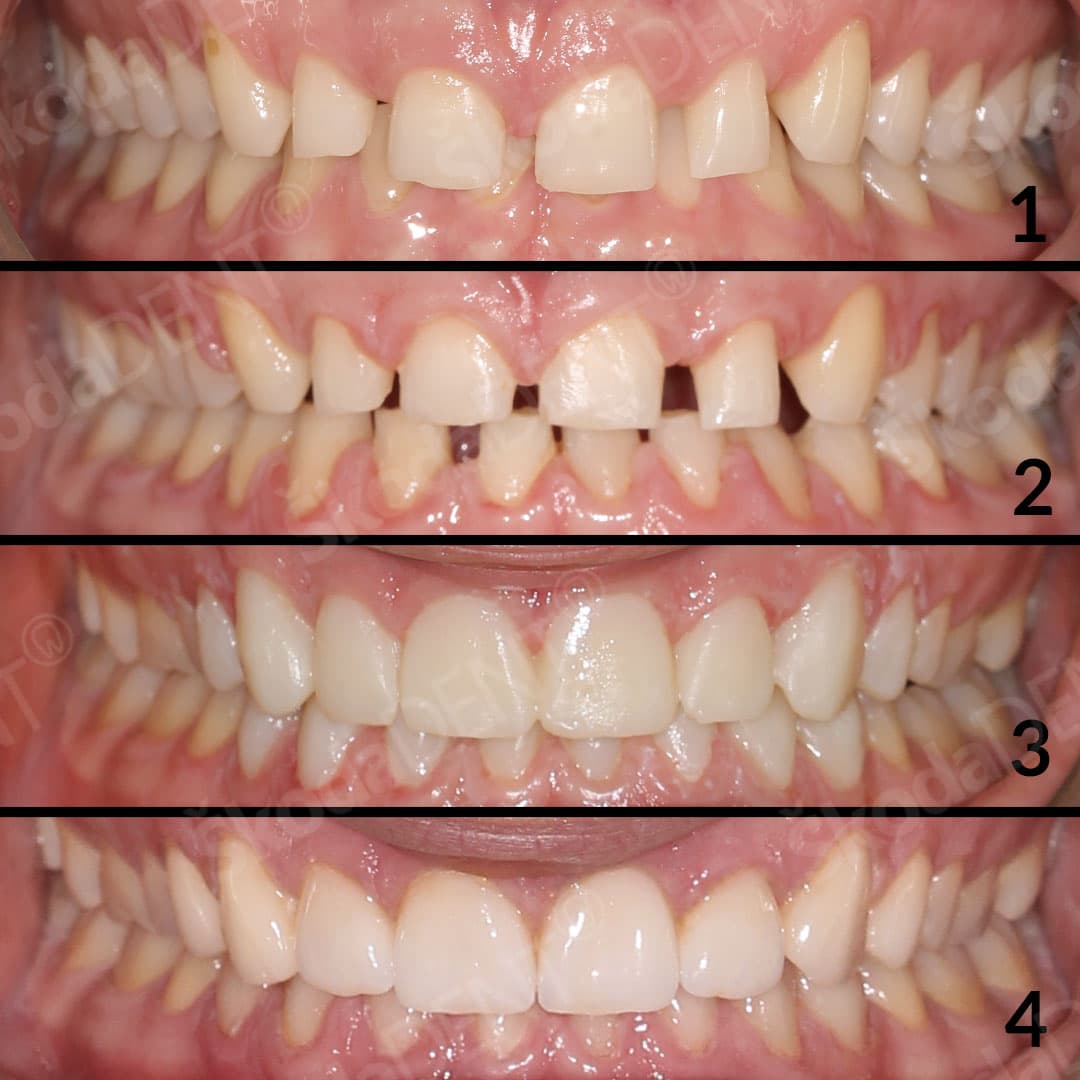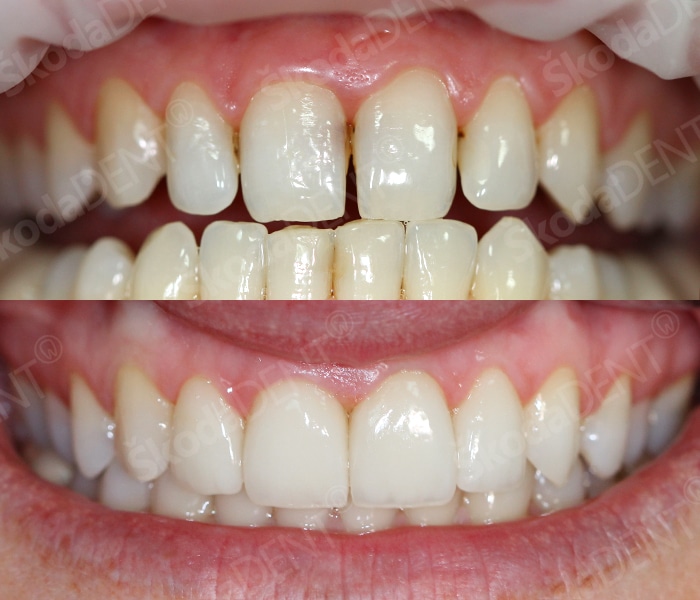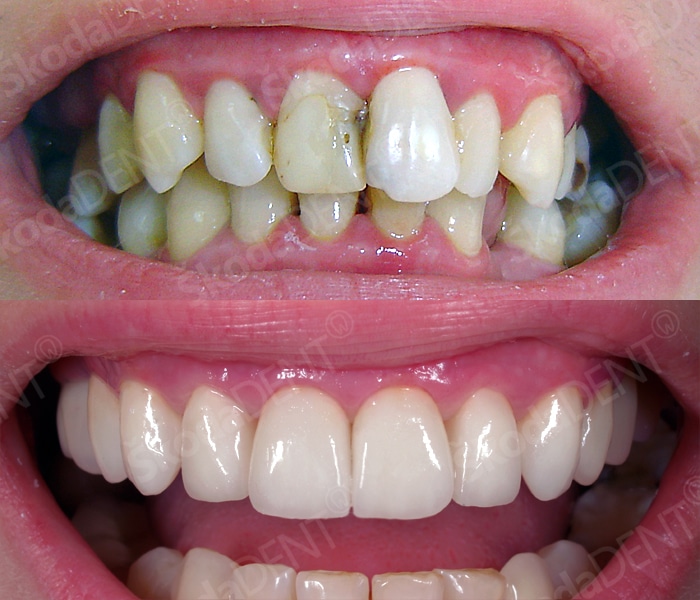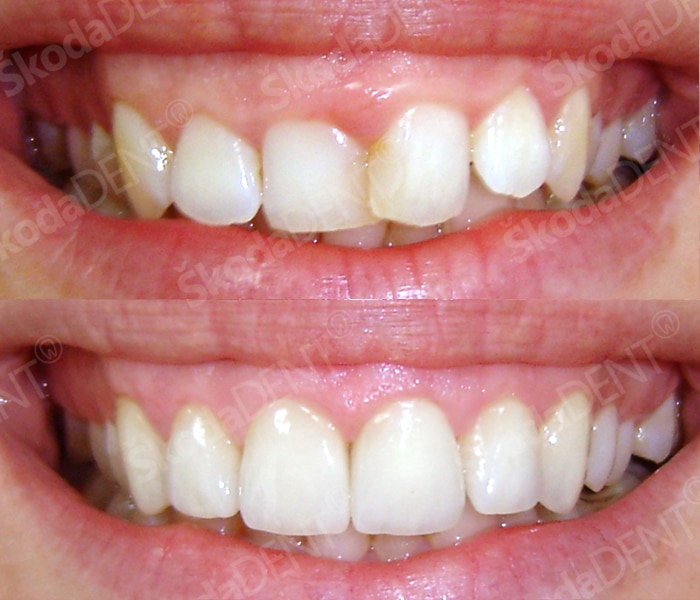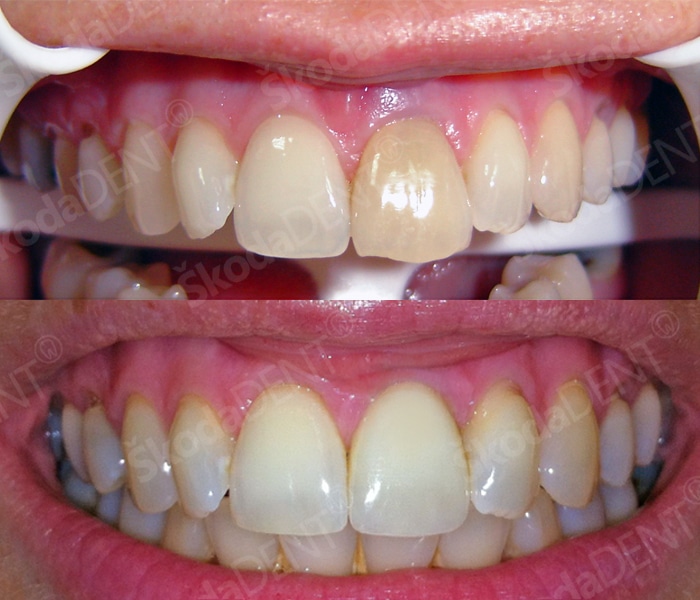Dental Crowns
CAD/CAM premium Zirconia and Ceramic Crowns - RijekaIn ŠkodaDENT, we use CAD/CAM technology for the production of dental crowns.
According to the material from which they are made, we divide them into two basic groups: metal-free dental crowns and crowns with a metal base.
Metal-free Dental crowns
As their name suggests, metal-free dental crowns do not contain metal in their composition. As a rule, they are used for highly aesthetic prosthetics because their color and light transmission are the most similar to natural tooth structures.
Nowadays, when the demand for superior smile aesthetics is increasing, and on the other hand, allergies to metal are increasingly present, metal-free dental crowns are becoming the most popular choice.
This group of dental crowns includes All-Ceramic (Press) crowns, Zirconia or Zircon-ceramic crowns, and Composite and Acrylate crowns.
All-Ceramic Dental Crowns
Crowns made entirely of ceramics (Press ceramic crowns) with their optical characteristics (the way they reflect and transmit light) most faithfully imitate the properties of a natural tooth. These crowns are almost impossible to distinguish from natural teeth, which is why they are used in high-end aesthetic smile reconstructions.
All-ceramic crowns are most often made as individual crowns on the front teeth because their strength is not sufficient for making larger bridges.
Considering that press ceramic (E-max ceramic) is very transparent, it is preferable that the tooth on which it is installed is not extremely dark and does not have a metal build-up.
Zirconia dental crowns
Zirconium oxide is a material that brought a revolution in aesthetic dentistry because its strength and optical properties enable an ideal combination of aesthetics and function.
Zirconia crowns are made using precise CAD/CAM computer technology. The crowns are designed on a computer, after which they are milled from blocks of zirconium oxide using very precise robotic milling cutters.
Zirconia crowns can be completely milled from zirconium, or the zirconia base is additionally individualized with a ceramic layer.
In order to be sure that the new crowns will fit perfectly on the teeth and satisfy the wishes of the patient, “trial” crowns are made. They are an exact replica of the future teeth, they are just made of “trial” material. In this way, the patient has the opportunity to see and try new crowns even before they are produced in zirconium, and to actively participate in their design and possible corrections. Only after we are sure that the patient is satisfied with the shape of the new teeth, and that the size of the teeth and the bite are “correct”, are zirconia crowns milled.
Porcelain fused to metal crowns
Porcelain fused to metal is a proven material that has been used for many years for the reconstruction of front and back teeth. The high strength of this material enables bridges with larger spans to be made from it.
Although the new metal-free materials have surpassed porcelain fused to metal in terms of aesthetics, they are still the material of choice for reconstructions of posterior teeth, bridges on implants, for the creation of larger bridges with a smaller number of supporting teeth, and for combined fixed-removable prosthetics.
What are CAD/CAM dental crowns?
The term CAD/CAM (engl.: computer-aided design / computer-aided manufacturing) means crowns designed and made using computers and robotic milling machines. They are characterized by very high precision and superb aesthetics. CAD/CAM technology represents the top of the class in planning, designing and producing of dental crowns.
Dental crowns on implants
A dental implant is a replacement for the root of a tooth and it can host all kinds of dental crowns, just like a natural tooth.
Porcelain fused to metal is most often used for implants in the back regions, while Zirconia crowns are most often used in the smile zone. In order to ensure the most precise fit of the crown to the implant, all structures are made with CAD/CAM technology.
For immediate bridge on implants (All on 4 and All on 6), where we load the implants within 24 hours from surgery, it is recommended to use solid constructions lined with light, soft materials. Their physical characteristics absorb chewing forces and soften impacts on implants.
Ceramage composite ceramics on titanium construction proved to be an ideal combination.
Ceramage is a material from the Japanese company Shofu that contains 73% zirconium silicate micro ceramic in an organic matrix.
Ceramics ensure high aesthetics and strength, while the organic matrix absorbs shocks and contributes to fracture resistance.
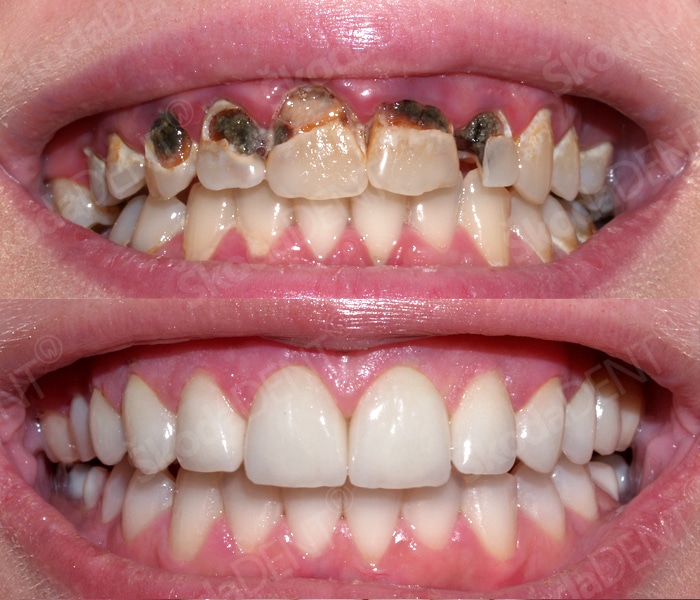
What is the procedure for making a dental crown?
The procedure begins with the documentation of the existing state of the teeth. Initial impressions, X-rays and photographs of the teeth are taken, and all the wishes of the patient are recorded.
If the tooth on which the new crown is placed has a worn-out “filling”, it is replaced with a new one, while teeth with decays are treated and built up.
Grinding removes a thin layer of enamel, which will be replaced by a crown. In the same visit, a temporary crown is made.
In the next phase, an impression or a 3D scan of the teeth is taken. Based on that, the dental technician creates a dental crown that is attached to the tooth at the next visit.
Until the final crowns are made, the patient wears temporary crowns, and at no time is he without teeth.
The procedure is painless and usually completed in two to three visits.
Dental crowns ensure a fresh and attractive smile for a long time, and restore lost chewing function.
Dental crown price
The prices of dental crowns depend on the material from which they are made. As a rule, the prices of CAD/CAM crowns are slightly higher than standard ones due to the expensive materials and equipment on which they are made. In ŠkodaDENT – Rijeka, the prices of crowns range from € 100 – 330.
See individual prices in our price list in the Dental Prosthetics and Dental Implants sections

